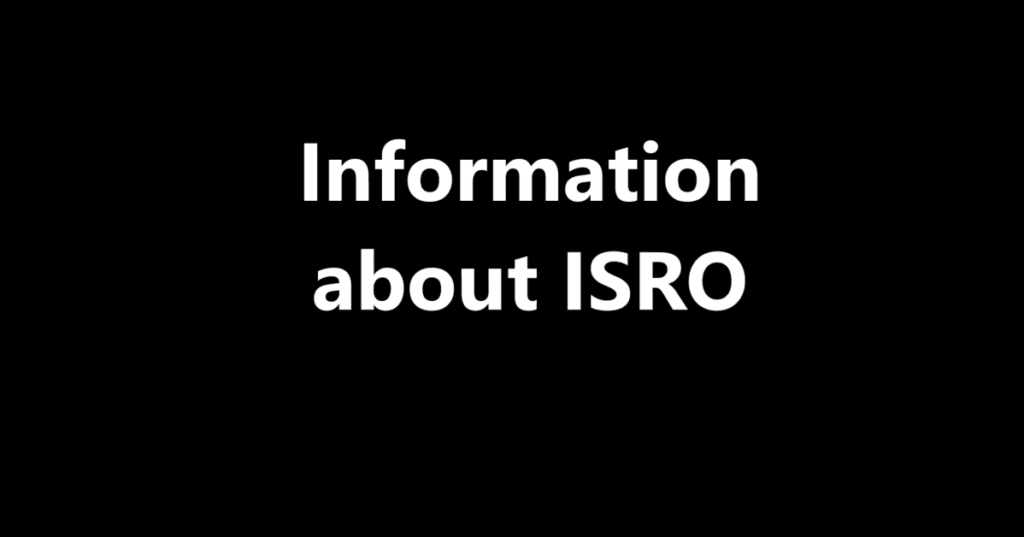Here’s a list of 50 influential scientists who profoundly changed our lives, along with brief descriptions of their contributions:
1. Albert Einstein (1879-1955)
- Field: Physics
- Contribution: Formulated the theory of relativity, revolutionizing our understanding of space, time, and gravity. His equation E=mc2E=mc2 laid the groundwork for nuclear energy.
2. Isaac Newton (1642-1727)
- Field: Physics, Mathematics
- Contribution: Developed the laws of motion and universal gravitation, foundational principles in physics. He also made significant contributions to calculus.
3. Charles Darwin (1809-1882)
- Field: Biology
- Contribution: Proposed the theory of evolution by natural selection, which transformed our understanding of biological diversity and the development of life on Earth.
4. Marie Curie (1867-1934)
- Field: Chemistry, Physics
- Contribution: Conducted pioneering research on radioactivity, discovering elements radium and polonium. She was the first woman to win a Nobel Prize and remains the only person to win Nobel Prizes in two different sciences.
5. Louis Pasteur (1822-1895)
- Field: Microbiology
- Contribution: Founded the field of microbiology and developed the germ theory of disease. His work on pasteurization and vaccines has had a lasting impact on public health.
6. James Clerk Maxwell (1831-1879)
- Field: Physics
- Contribution: Formulated Maxwell’s equations, which describe electromagnetism and laid the foundation for modern physics, including the theories of light and electricity.
7. Galileo Galilei (1564-1642)
- Field: Astronomy, Physics
- Contribution: Made significant contributions to the scientific method and is known for his improvements to the telescope and discoveries regarding planetary motion.
8. Stephen Hawking (1942-2018)
- Field: Theoretical Physics
- Contribution: Known for his work on black holes and cosmology, particularly his theoretical prediction that black holes emit radiation (Hawking radiation).
9. Richard Feynman (1918-1988)
- Field: Physics
- Contribution: Made significant contributions to quantum mechanics and particle physics. He was also known for his teaching methods and popularizing science.
10. Niels Bohr (1885-1962)
- Field: Physics
- Contribution: Contributed to our understanding of atomic structure and quantum theory. His model of the atom laid the groundwork for modern atomic physics.
11. Ada Lovelace (1815-1852)
- Field: Mathematics, Computing
- Contribution: Often considered the first computer programmer for her work on Charles Babbage’s early mechanical general-purpose computer, the Analytical Engine.
12. Johannes Kepler (1571-1630)
- Field: Astronomy
- Contribution: Known for his laws of planetary motion, which described the elliptical orbits of planets around the Sun.
13. Michael Faraday (1791-1867)
- Field: Physics, Chemistry
- Contribution: Made groundbreaking discoveries in electromagnetism and electrochemistry, including the principles of electromagnetic induction.
14. Rosalind Franklin (1920-1958)
- Field: Chemistry, Molecular Biology
- Contribution: Contributed to the understanding of the molecular structures of DNA, RNA, viruses, coal, and graphite through X-ray diffraction images.
15. Gregor Mendel (1822-1884)
- Field: Genetics
- Contribution: Established the foundational principles of inheritance through his work on pea plants, which became the basis for the field of genetics.
16. James Watson and Francis Crick (1920-2020, 1916-2004)
- Field: Molecular Biology
- Contribution: Discovered the double helix structure of DNA, unveiling the molecular basis of genetic inheritance.
17. Paul Dirac (1902-1984)
- Field: Physics
- Contribution: Made fundamental contributions to quantum mechanics and quantum electrodynamics, proposing what is now known as the Dirac equation.
18. Carl Sagan (1934-1996)
- Field: Astronomy, Astrophysics
- Contribution: Popularized science through his books and television series, greatly expanding public understanding of the universe and advocating for scientific skepticism.
19. Barbara McClintock (1902-1992)
- Field: Genetics
- Contribution: Discovered genetic transposition (jumping genes), earning the Nobel Prize in Physiology or Medicine in 1983 for her pioneering work on maize genetics.
20. Emmy Noether (1882-1935)
- Field: Mathematics, Physics
- Contribution: Best known for Noether’s theorem, which linked symmetries and conservation laws, fundamentally shaping theoretical physics.
21. Antoine Lavoisier (1743-1794)
- Field: Chemistry
- Contribution: Considered the “father of modern chemistry,” he helped establish the law of conservation of mass and named oxygen and hydrogen.
22. Max Planck (1858-1947)
- Field: Physics
- Contribution: Originator of quantum theory, which revolutionized our understanding of atomic and subatomic processes.
23. John von Neumann (1903-1957)
- Field: Mathematics, Computer Science
- Contribution: Made foundational contributions to computer science and game theory; his architectural design is still used in computers today.
24. Blaise Pascal (1623-1662)
- Field: Mathematics, Physics
- Contribution: Made contributions to probability theory and fluid mechanics; known for Pascal’s Law in fluid dynamics.
25. Anders Celsius (1701-1744)
- Field: Astronomy
- Contribution: Developed the Celsius temperature scale, which is widely used today.
26. Richard Dawkins (1941-)
- Field: Evolutionary Biology
- Contribution: Advocated for the gene-centered view of evolution and popularized the concept of the “selfish gene.”
27. Lise Meitner (1878-1968)
- Field: Physics
- Contribution: Contributed to the discovery of nuclear fission, which led to the development of nuclear energy and weapons.
28. Erwin Schrödinger (1887-1961)
- Field: Physics
- Contribution: Developed the Schrödinger equation, a fundamental equation in quantum mechanics describing how quantum states evolve over time.
29. Flora Lewis (1918-2002)
- Field: Journalism, Sociology
- Contribution: Influential in shaping public opinion and understanding of scientific issues through her journalist work.
30. Kevin Kelly (1952-)
- Field: Technology, Futurism
- Contribution: Founding executive editor of Wired magazine, Kelly has written extensively on technology and culture.
31. David Attenborough (1926-)
- Field: Natural History Broadcasting
- Contribution: Renowned broadcaster and natural historian, he has greatly influenced public awareness of environmental and conservation issues.
32. Santiago Ramón y Cajal (1852-1934)
- Field: Neuroscience
- Contribution: Considered the father of modern neuroscience for his work on the structure of the nervous system.
33. Rita Levi-Montalcini (1909-2012)
- Field: Neurobiology
- Contribution: Discovered nerve growth factor (NGF), earning a Nobel Prize for her research on cell growth and development.
34. John Gurdon (1933-)
- Field: Developmental Biology
- Contribution: Developed techniques for cloning, significantly advancing stem cell research and regenerative medicine.
35. Thomas Edison (1847-1931)
- Field: Invention, Electrical Engineering
- Contribution: Esteemed inventor; developed the phonograph and electric light bulb, paving the way for modern electric utilities.
36. Gerty Cori (1896-1957)
- Field: Biochemistry
- Contribution: First woman to win a Nobel Prize in Physiology or Medicine for her research on carbohydrate metabolism.
37. Katherine Johnson (1918-2020)
- Field: Mathematics, Space Exploration
- Contribution: Instrumental in calculating trajectories for NASA’s early space missions, breaking barriers for women and African Americans in STEM.
38. Robert H. Grubbs (1942-)
- Field: Chemistry
- Contribution: Developed the metathesis method in organic synthesis, significantly impacting chemical research and manufacturing.
39. David Baltimore (1938-)
- Field: Microbiology
- Contribution: Played a crucial role in HIV research and in understanding cancer and recombinant DNA technology.
40. Francesco Redi (1626-1697)
- Field: Biology
- Contribution: Challenged the theory of spontaneous generation, laying groundwork for experimental biology.
41. Hugh Everett III (1930-1982)
- Field: Physics
- Contribution: Proposed the many-worlds interpretation of quantum mechanics, influencing theories of parallel universes.
42. Jane Goodall (1934-)
- Field: Primatology, Anthropology
- Contribution: Conducted groundbreaking research on chimpanzees, revolutionizing our understanding of animal behavior and conservation efforts.
43. Sir James Lighthill (1924-1998)
- Field: Fluid Mechanics, Aerodynamics
- Contribution: Made significant strides in understanding sound and fluid dynamics, influencing the field of aeronautics.
44. J. Craig Venter (1946-)
- Field: Genetics
- Contribution: Credited with sequencing the human genome, significantly advancing genomics and synthetic biology.
45. Richard J. Roberts (1943-)
- Field: Molecular Biology
- Contribution: Discovered split genes and non-coding DNA, contributing to our understanding of DNA and gene function.
46. Robert Oppenheimer (1904-1967)
- Field: Physics
- Contribution: Played a key role in the Manhattan Project, which developed the atomic bomb, significantly impacting global politics and warfare.
47. Bert Sakmann (1942-)
- Field: Neurophysiology
- Contribution: Developed techniques to record the activity of individual neurons, advancing neuroscience research.
48. Charles Lyell (1797-1875)
- Field: Geology
- Contribution: Proposed the principle of uniformitarianism, establishing a basis for understanding Earth’s geological history.
49. C.V. Raman (1888-1970)
- Field: Physics
- Contribution: Discovered the Raman effect, paving the way for advances in spectroscopy and our understanding of molecular structure.
50. David P. Baker (1972-)
- Field: Biochemistry, Computational Biology
- Contribution: Known for creating novel proteins through computational design, pushing the boundaries of synthetic biology and bioengineering.
These scientists have left an indelible mark on various fields, influencing technology, medicine, and our understanding of the universe.


